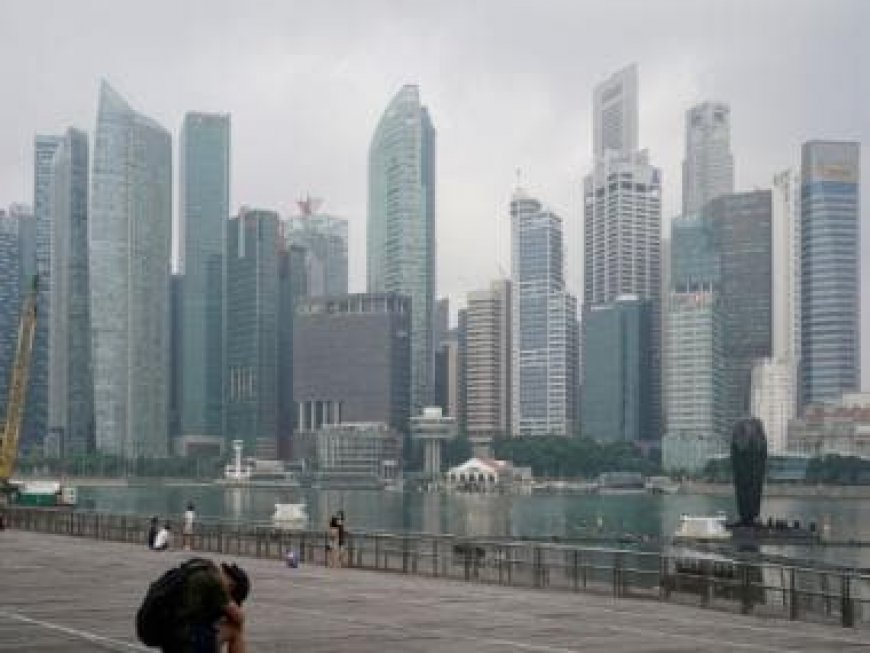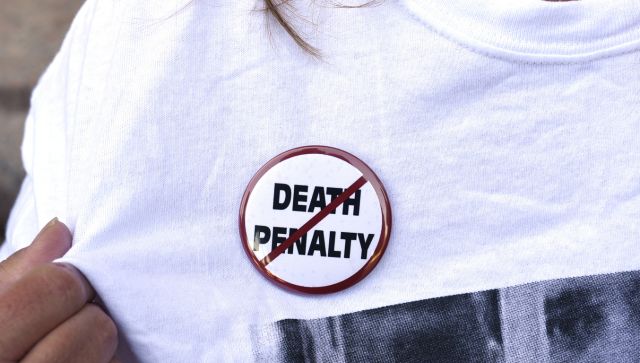Singapore hangs first woman in 19 years: A look at nation’s harsh drug laws
Singapore hangs first woman in 19 years: A look at nation’s harsh drug laws

Singapore hanged its first woman in 19 years today (28 July), the island nation’s second execution for drug trafficking in a week. Saridewi Djamani, a 45-year-old Singaporean woman, was sentenced to death in 2018 for trafficking about 31 grams of diamorphine, or pure heroin, Associated Press (AP) reported citing the Central Narcotics Bureau.
Her execution comes two days after Singaporean national Mohammed Aziz Hussain, 56, was sent to the gallows at Singapore’s Changi Prison for drug trafficking.
Let’s take a closer look at Singapore’s harsh anti-drug laws.
Death penalty in Singapore
Singapore imposes the death penalty for murder, drug trafficking, terrorism, some forms of kidnapping and crimes involving firearms.
The city-state’s anti-drug laws are among the strictest across the globe.
Singapore’s laws mandate capital punishment for trafficking more than 500 grams of cannabis and 15 grams of heroin or diamorphine, reported AP.
Under Singapore law, Al Jazeera noted, anyone found with more than two grams of diamorphine is presumed to be trafficking drugs.
The Singapore government resumed executions in March 2022, following a two-year pause during the COVID-19 pandemic.
According to human rights groups, Singapore has executed 15 people so far since then.
Saridewi Djamani and more
Before Djamani, the last time a woman was hanged in Singapore for drug trafficking was in 2004 when 36-year-old hairdresser Yen May Woen was sentenced to death, Transformative Justice Collective (TJC), a Singapore rights group that endorses the abolishment of capital punishment, activist Kokila Annamalai told AFP.
Local media reported that Djamani stated in her trial previously that she was stocking up on heroin for the Muslim fasting month, Ramzan. However, her defence was dismissed by the court and a further appeal was also unsuccessful, Al Jazeera reported.
According to Kirsten Han, another TJC activist, Hussain – who was also hanged this week – was sentenced to death in 2018 for trafficking around 50 grams of heroin.

TJC said in May that it believed 54 people were on death row in Singapore currently, with all, except three, sentenced for drug-related offences, reported Al Jazeera.
The rights group told AP that a new execution notice – the fifth this year – has been issued to an inmate for 3 August. As per TJC, the prisoner is an ethnic Malay citizen who was convicted in 2019 of trafficking around 50 grams of heroin.
Last April, the execution of Nagaenthran Dharmalingam, an Indian-origin Malaysian with intellectual disabilities, had put the spotlight back on Singapore’s harsh anti-drug laws.
He was arrested in 2010 after a bundle of 42.7 grams of heroin was found strapped to his thigh, as per Al Jazeera.
His case drew international attention with the United Nations calling for a halt on his execution. However, Singapore went ahead with the hanging rejecting Dharmalingam’s mother’s clemency plea.
Sara Kowal, vice president of the Capital Punishment Justice Project in Australia, told Al Jazeera in May that “the Singapore government is very committed to the death penalty being the main element of its drug policy”.
Opposition to death penalty
Singapore’s death penalty for drug offences has been widely condemned.
Critics say that these laws punish low-level drug traffickers and couriers, who are mostly recruited from marginalised groups.
“The death penalty is a brutal system that is disproportionately used on vulnerable and marginalised communities. It doesn’t deliver justice, only violence, cruelty, and pain. The death penalty is the mark of a punitive society where we approach problems not with care and compassion, but with a desire to punish and inflict pain,” TJC activist Han told Asia Media Centre last October.
Human rights experts from the UN have also said that “a disproportionate number of minority persons were being sentenced to the mandatory death penalty in Singapore”, reported Al Jazeera.
As per AP, a joint statement by TJC and other groups has claimed that Law Minister K Shanmugam admitted in a 2022 interview that Singapore’s harsh policy on drugs has not resulted in the arrest of “drug kingpins”.

British billionaire Richard Branson has also often spoken up against capital punishment in the city-state. Seeking clemency for Djamani, Branson said on Thursday: “Small scale-drug traffickers need help, as most are bullied due to their circumstances. The death penalty is not a deterrent.”
On Tuesday, rights watchdog Amnesty International appealed to the Singapore government to stop the impending executions.
“It is unconscionable that authorities in Singapore continue to cruelly pursue more executions in the name of drug control,” Amnesty’s death penalty expert Chiara Sangiorgio said in a statement, as per AFP.
“There is no evidence that the death penalty has a unique deterrent effect or that it has any impact on the use and availability of drugs. As countries around the world do away with the death penalty and embrace drug policy reform, Singapore’s authorities are doing neither,” Sangiorgio added.
According to Amnesty International, only four countries such as Singapore, China, Iran and Saudi Arabia have carried out executions for drug-related offences recently.
ALSO READ: Who is Tharman Shanmugaratnam, Indian-origin man who could be next Singapore president?
Singapore defends harsh drug policy
Singapore claims capital punishment for drug crimes deters drug dealers and helps in keeping the island nation one of the safest places globally.
It also cites wide public support for the death penalty for drug-related offences. A 2019 study by the Ministry of Home Affairs found that almost 70 percent of Singaporeans believed that capital punishment is more effective than life imprisonment to curb drug trafficking.
Speaking to Singapore’s TODAY newspaper in 2018, the senior parliamentary secretary for home affairs and health at the time, Amrin Amin, had said: “The death penalty has deterred major drug syndicates from establishing themselves in Singapore. And this has helped to reduce the supply of drugs to Singapore”.
TJC activist Han told TODAY that she believes that there is a lack of awareness among the public in Singapore due to the difficulty in spreading awareness about such cases. In Singapore, “abolitionist ideas are rarely given space in mainstream discourse, which tends to perpetuate the government’s arguments,” Han told Asia Media Centre last year.
Meanwhile, despite international pressure, it does not seem Singapore has plans to amend its strict drug laws anytime soon.
With inputs from agencies
What's Your Reaction?



























































